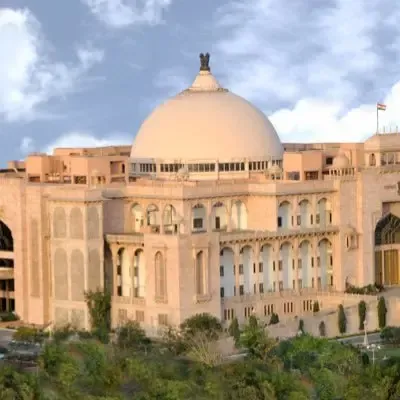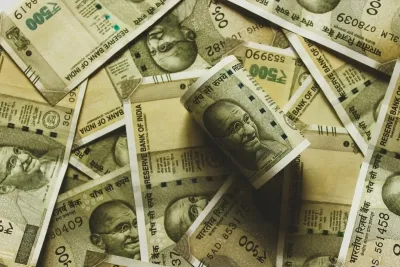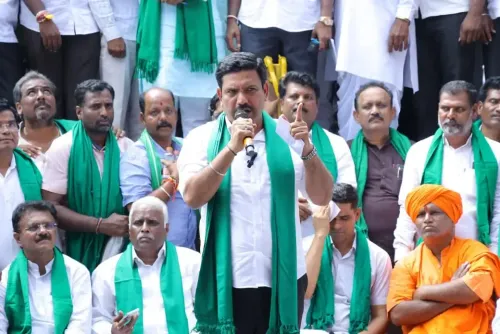Did Rajasthan Assembly Approve the Anti-Conversion Bill?

Synopsis
Key Takeaways
- The Rajasthan Assembly passed the Anti-Conversion Bill amid protests.
- The bill introduces life imprisonment and heavy fines for forced conversions.
- Voluntary conversions require prior approval and must follow a specific application process.
- Properties linked to mass conversions can be confiscated or demolished.
- Marriages for the sole purpose of conversion will be declared void.
Jaipur, Sep 9 (NationPress) The Rajasthan Assembly on Tuesday approved the Rajasthan Prohibition of Unlawful Conversion of Religion Bill, 2025, despite significant disruptions from Congress MLAs, who opted to boycott the discussions and protested within the legislative assembly. Following the bill's approval, the session was adjourned until Wednesday morning.
The state government claims that the legislation is designed to prevent unlawful religious conversions achieved through misrepresentation, misinformation, force, undue influence, coercion, allurement, online solicitation, or marriage under false pretenses. It includes severe penalties, comprising life imprisonment and fines reaching up to one crore rupees.
As per the provisions, properties implicated in mass conversions can be confiscated or demolished post-investigation, while establishments linked to such activities may be seized and razed following an administrative inquiry.
The bill also stipulates that marriages conducted solely for religious conversion will be deemed void by the court, with conversions before or after such unions classified as unlawful, directly addressing the controversial issue of 'love jihad.'
Even voluntary conversions will necessitate prior consent, requiring individuals to submit applications to the Collector or ADM 90 days in advance, while religious leaders conducting conversions must provide a 60-day notice.
Public notices will be issued, inviting objections, with conversions authorized only after hearings and approvals. Violations could lead to imprisonment of 7 to 10 years and fines of up to 3 lakh rupees, while organizations found guilty may face registration cancellations and fines up to 1 crore rupees. Individuals receiving funds from foreign or illegal entities for unlawful conversions may face rigorous imprisonment from 10 to 20 years and fines not less than 20 lakh rupees.
Individuals converting will also be required to present themselves to the Collector within ten days to verify their identity and submit complete information. During the discussions, BJP MLA Gopal Sharma encouraged members who had converted to “return to their original religion,” specifically mentioning Congress MLAs Rafiq Khan and Amin Kagzi.
Meanwhile, Congress refrained from engaging in the debate, opting to protest vocally against the government's approach.
Chief Minister Bhajan Lal Sharma defended the legislation, asserting that while the Constitution grants individuals the right to profess, practice, and propagate their religion, this right should not be interpreted as a collective right to proselytise.
He noted that recently, naive individuals have been converted through fraudulent or coercive methods, necessitating a law in Rajasthan, which previously lacked such legislation.
“Laws concerning the right to religious freedom exist in various states across the country, but Rajasthan has not enacted any statute on this matter. Consequently, we decided to implement a law prohibiting unlawful conversion from one religion to another by means of misrepresentation, misinformation, coercion, undue influence, allurement, or by fraudulent means including marriage or the pretext of marriage,” stated the CM.
With the bill's approval, Rajasthan has aligned itself with other states enforcing strict anti-conversion regulations.









